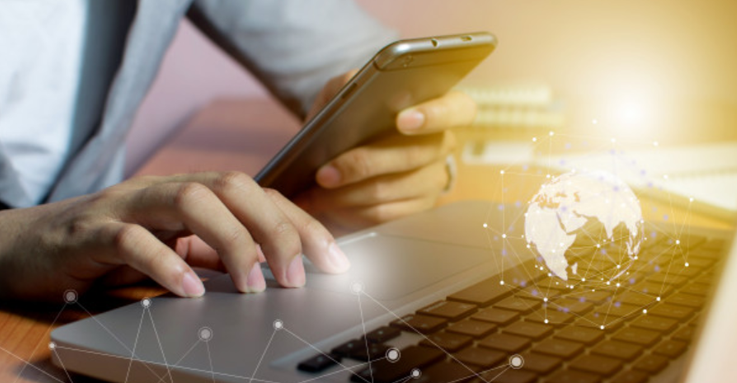

It’s a common practice for cybercriminals to launch attacks by tricking people through phishing scams and deceitful malware-mounted files. Hackers may also exploit the vulnerabilities of a private network or a system to steal confidential information and data. Though these types of malicious practices have become a norm in the field of modern hacking and online theft, another exploitable technology has also become a desirable prey for modern hackers – remote access software.
Remote access software is a type of program that allows a computer to be accessed and control remotely while its screen is being displayed on a client’s computing device. Most of today’s businesses use this technology to effectively manage business operations in and out of the country, conduct remote meetings and conferences, and allow employees to access their files even outside of a corporate space. For small businesses, remote access software acts as a tool that allows them to outsource IT services and maintenance.
Despite the convenience and services remote access provides to modern organizations, it can also bring some level of security concerns to your business. Hackers have several ways of exploiting the vulnerabilities of remote access software in hopes of causing a security incident to a private network or system. If there’s a poor protocol for installing remote access software, then there’s a high chance for hackers to gain unwanted access to your system.
Having poor passwords can also increase the risks of falling victim to malicious hacking and unwanted access. That’s why it’s necessary for businesses to strengthen their account codes to ensure that they have strong initial security against cyber criminals and hackers. Using remote access software outside of a local network can also enable hackers to execute brute force attacks by trying to decode weak passwords and codes. Once they gain access to your system, they’ll be able to acquire information that can result in a major security incident.
Businesses that don’t limit the use of remote access software are also prone to being attacked by hackers, dishonest software vendors, and resentful employees. By not restricting the use of the said software, these fraudulent individuals can carry attacks that can ultimately cause you a non-security event. Not only does it disrupt the operation of your business, but it can also stain the reputation and credibility of your organization in terms of carrying out security measures and protocols.
An article released by Sify Finance revealed that a group of Russian hackers were able to target a number of European embassies by using popular remote access software. These hackers sent out deceitful files that they disguised as a credible US government data to the targeted embassies in Kenya, Liberia, Nepal, Guyana, Italy, Bermuda, Lebanon, and others. Once viewed, these hackers were able to gain access to the targeted computer by unwillingly installing the said remote access software.
It’s always important for businesses to limit the use of remote access software. As much as possible, make it to the point where only those who need to use this method of connection can use remote access software. Otherwise, all access should be disabled temporarily. Remote access policies should also be evaluated annually to assess the areas of improvement that need to be focused on.
Strengthening passwords for remote access accounts can also combat any malicious attacks that hackers can carry out to your system and network. Using two-factor authentication can help you strengthen your passwords even more. By combining two user identifications, hackers may have a difficult time decoding your passwords and breaking into your private system. You can also use unique passwords for each remote access account to ensure that security of your system against cybercriminals and hackers.
Investing in a secure remote access software can also help you maintain a secure environment online. Make sure to buy your own remote access solution from legit and credible vendors. Also, it’s important to uninstall remote access software that isn’t in use anymore. By doing so, no malicious users or hackers can exploit that old remote access tool to steal and acquire important and confidential data from your system.
Conclusion
Now that hackers are more creative and technical when it comes to exploiting remote access tools, it’s time for you to amp up your security against the threats that they can carry out to your system. By securing remote access software, you’ll be able to have a safe environment away from security threats and risks that come with the utilization of remote access.
Tags: